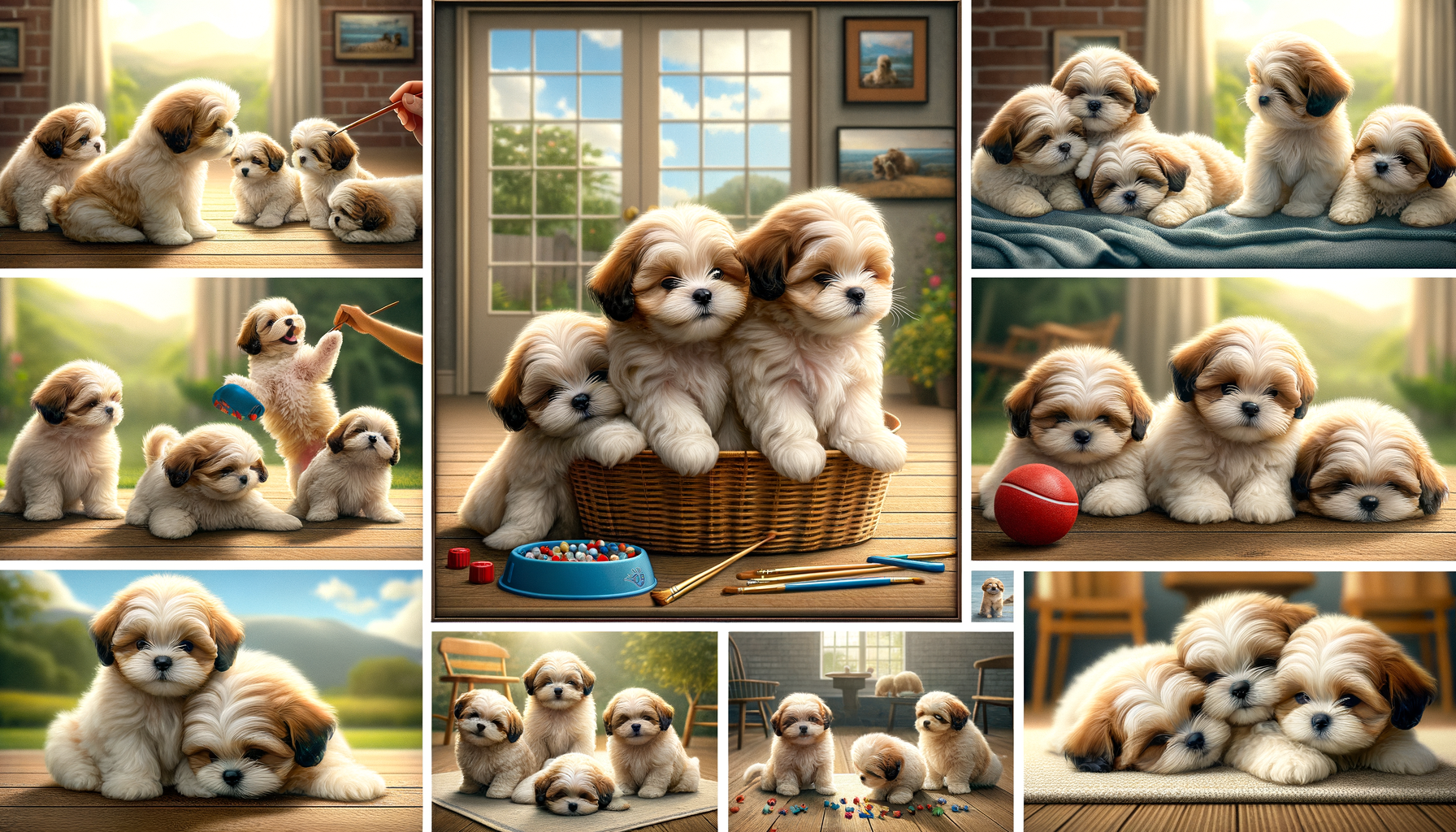Understanding Toy and Teacup Puppies
Toy and teacup puppies have captured the hearts of many dog lovers with their adorable size and charming personalities. These small-breed dogs are often sought after for their compactness, making them suitable for apartment living and individuals with limited space. However, their petite stature comes with unique considerations that potential owners should be aware of. Toy breeds generally weigh between 4 to 7 pounds, while teacup varieties are even smaller, usually under 4 pounds. This tiny size can make them more fragile and susceptible to injuries, necessitating careful handling.
Despite their size, toy and teacup puppies often exhibit big personalities. They are known for being lively and affectionate, making them excellent companions. However, their small size means they have specific dietary and health needs. Owners should ensure they receive a balanced diet rich in nutrients to support their growth and energy levels. Regular veterinary check-ups are crucial to monitor their health and prevent common issues such as hypoglycemia, which is more prevalent in smaller breeds.
It’s essential to understand that these puppies require socialization and training like any other dog. Early socialization helps them develop into well-adjusted dogs, reducing anxiety and behavioral problems. Training can be a delightful experience, as many toy and teacup breeds are intelligent and eager to learn. Overall, understanding the unique needs and characteristics of toy and teacup puppies can help potential owners provide the best care and environment for these delightful companions.
Popular Toy and Teacup Breeds
Several breeds fall under the toy and teacup categories, each with its own distinct traits and characteristics. Among the most popular toy breeds are the Pomeranian, Chihuahua, and Toy Poodle. These breeds are known for their lively demeanor and affectionate nature. The Pomeranian, with its fluffy coat and fox-like face, is a favorite for those who love a spirited and outgoing companion. Chihuahuas, on the other hand, are renowned for their loyalty and bold personality, often forming strong bonds with their owners.
Teacup varieties are often smaller versions of these toy breeds, selectively bred for their tiny size. Teacup Yorkies and Teacup Maltese are among the most sought-after. The Teacup Yorkie, with its silky coat and playful spirit, is adored by many. The Teacup Maltese, with its gentle disposition and elegant appearance, is another popular choice for those seeking a small canine companion.
When choosing a toy or teacup breed, it’s important to consider factors such as temperament, grooming needs, and potential health issues. Some breeds may require more grooming due to their coat type, while others may have specific health concerns that need to be addressed. Prospective owners should research and understand these aspects to ensure they select a breed that aligns with their lifestyle and capabilities.
Health Considerations for Toy and Teacup Puppies
While toy and teacup puppies are undeniably adorable, their small size can make them prone to specific health issues. One of the most common concerns is hypoglycemia, a condition characterized by low blood sugar levels. This can occur due to their fast metabolism and small body reserves, making it crucial for owners to provide frequent, small meals throughout the day. Recognizing signs of hypoglycemia, such as lethargy and muscle tremors, is vital for timely intervention.
Another health consideration is dental care. Toy and teacup breeds often have crowded teeth due to their small mouths, increasing the risk of dental problems. Regular dental check-ups and proper oral hygiene are essential to prevent issues like periodontal disease and tooth loss. Additionally, these breeds may be susceptible to patellar luxation, a condition where the kneecap dislocates, leading to lameness and discomfort. Regular veterinary visits can help monitor and manage such conditions effectively.
It’s also important to be aware of potential respiratory issues, especially in breeds with brachycephalic (short-nosed) features, like the Pug or Bulldog. These breeds may experience breathing difficulties, particularly in hot or humid weather. Ensuring a cool and comfortable environment, along with regular health check-ups, can help mitigate these issues. Overall, understanding and addressing the unique health needs of toy and teacup puppies is crucial for their well-being and longevity.
Caring for Toy and Teacup Puppies
Caring for toy and teacup puppies involves more than just meeting their basic needs. Due to their small size, they require a safe and secure environment to prevent injuries. Puppy-proofing the home by removing hazards and providing soft bedding can help protect these delicate companions. Additionally, providing appropriate toys and activities is essential to keep them mentally stimulated and physically active.
Socialization is a key aspect of caring for these puppies. Exposing them to various environments, people, and other animals from a young age helps them develop confidence and reduces anxiety. Positive reinforcement training methods work well with these intelligent breeds, fostering a strong bond between the puppy and owner.
Grooming requirements vary depending on the breed. Long-haired breeds may need regular brushing to prevent mats and tangles, while short-haired breeds may require less maintenance. Regardless of coat type, regular grooming sessions provide an opportunity to check for any skin issues or abnormalities.
Lastly, it’s important to provide regular veterinary care to monitor their health and address any concerns promptly. Vaccinations, parasite prevention, and routine check-ups are essential components of their care regimen. By understanding and addressing the unique needs of toy and teacup puppies, owners can ensure a happy and healthy life for their tiny companions.
Choosing the Right Toy or Teacup Puppy
Choosing the right toy or teacup puppy involves careful consideration of various factors to ensure a good match between the puppy and the owner’s lifestyle. Prospective owners should assess their living situation, time availability, and financial resources before making a decision. Toy and teacup puppies, while small, require dedicated care and attention, making them more suitable for individuals who can commit the time and effort needed for their well-being.
Researching different breeds and understanding their specific needs and characteristics can help potential owners make an informed choice. Some breeds may be more suitable for families with children, while others may thrive in quieter, adult-only households. It’s also important to consider any potential allergies, as some breeds may be less allergenic than others.
Visiting reputable breeders or adoption centers and meeting the puppies in person can provide valuable insights into their temperament and behavior. Observing how they interact with people and their environment can help identify a puppy that aligns with the owner’s expectations and lifestyle. Additionally, asking questions about the puppy’s health history, parentage, and any potential genetic issues can provide important information for making a well-informed decision.
Ultimately, choosing the right toy or teacup puppy involves finding a companion that fits seamlessly into the owner’s life, offering joy and companionship for years to come.




Leave a Reply